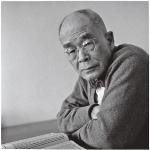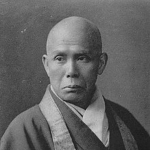Background
Paul Carus was born on July 18, 1852, in Ilsenburg, Germany. He is the son of Gustav and Laura (Krueger) Carus.

4 Rue Blaise Pascal, 67081 Strasbourg, France
Paul Carus was educated at the University of Strassburg.
Geschwister-Scholl-Platz, 72074 Tübingen, Germany
Paul Carus graduated from the University of Tübingen with a Doctor of Philosophy in 1876.
Domstraße 11, 17489 Greifswald, Germany
Paul Carus studied at the University of Greifswald.
Paul Carus







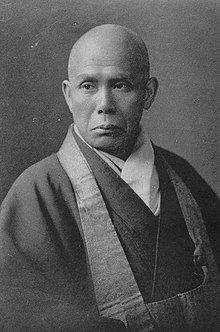
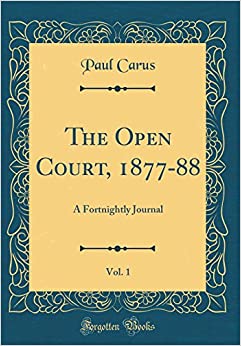
(It seems that there are such principles. And one of the f...)
It seems that there are such principles. And one of the first among them is that nature in this matter should be our teacher; not material nature merely, but nature in its broad meaning as including man as well as the physical universe, nature as covering the whole of that spinal world-plan by which, as science assures. Us, from the amorphous, chaotic mass of primitive matter, with whatever forces were inherent in it, there came successively all the various orders of being known to earth, on an ascending scale of organic capacity and function, until the man was reached, with his commanding intellect, his moral sense, his creative purpose and will to be guided by reason and right.
https://www.amazon.com/Open-Court-1877-88-Vol-Fortnightly/dp/0483333778/ref=sr_1_1?dchild=1&keywords=The+Open+Court+Fortnightly+Journal+Vol+1&qid=1590079411&sr=8-1
1887
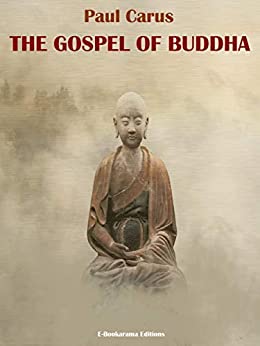
(This work soon became a worldwide bestseller, completely ...)
This work soon became a worldwide bestseller, completely eclipsing the one previous attempt to popularise Buddhism in the West, Sir Edwin Arnold's "The Light of Asia." Carus collected accounts of the life and teaching of the Buddha from many sources and fashioned a coherent and gripping narrative which would be understood by Americans as very much like a Christian "gospel." The Gospel of Buddha was quickly translated into Japanese and other Eastern languages, and was taken up by teachers in the Buddhist world.
https://www.amazon.com/Gospel-Buddha-Paul-Carus-ebook/dp/B087WRLL28/ref=sr_1_1?dchild=1&keywords=Paul+Carus+The+Gospel+of+Buddha&qid=1590080200&sr=8-1
1894
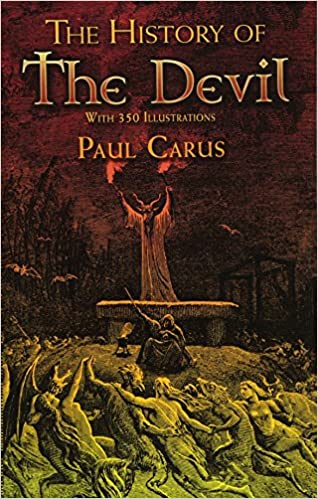
(A pioneer in the promotion of interfaith dialogue, Paul C...)
A pioneer in the promotion of interfaith dialogue, Paul Carus (1852–1919) was a highly regarded writer on philosophy and comparative religion and a major influence in introducing Buddhist and other Eastern ideas to the West. The History of the Devil is his magnum opus, exploring the evolution of the idea of evil and the concept of Satan from antiquity to modern times. Carus follows the devil around the world, highlighting satanic manifestations in a fascinating variety of cultures and historic periods. In addition to examining the concepts of good and evil as religious and philosophical ideas, he discusses the particulars of demonology in ancient Egypt and Persia, in Hindu and Buddhist thought, in early Christianity, and throughout the Inquisition and Reformation. At once scholarly and intriguing, the text is enhanced by 350 rare and fascinating illustrations.
https://www.amazon.com/History-Devil-Illustrations-Dover-Occult/dp/0486466035/ref=sr_1_1?dchild=1&keywords=Paul+Carus+The+History+of+the+Devil+and+the+Idea+of+Evil&qid=1590080402&sr=8-1
1900
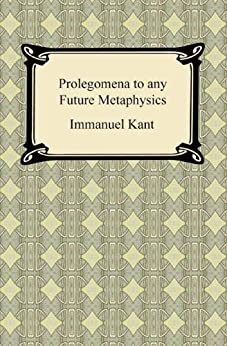
(Immanuel Kant - Author, Paul Carus - Translator.)
Immanuel Kant - Author, Paul Carus - Translator.
https://www.amazon.com/Kants-Prolegomena-any-Future-Metaphysics-ebook/dp/B004UO69DE/ref=sr_1_1?dchild=1&keywords=paul+carus+Kant%27s+Prolegomena&qid=1590082159&s=books&sr=1-1
1902
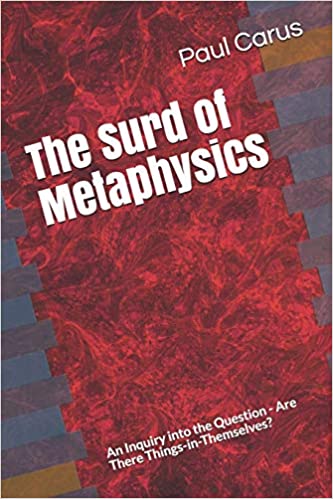
(The subject discussed in this book is one of the most imp...)
The subject discussed in this book is one of the most important of the problems of philosophy, and it is not difficult to understand that in its application to real-life it is of a paramount practical nature, not only in the domains of ethics and religion but also in our general attitude toward the world and in our every-day doings. The idea of "things-in-themselves" originates as a natural phase in the evolution of human thought, and its formulation is as necessary as it is for certain purposes beneficial. In denouncing the belief in things-in-themselves as a superstition, we must, therefore, warn the student not to overlook the truth that is contained in it.
https://www.amazon.com/Surd-Metaphysics-Question-Things-Themselves/dp/1698311850
1903
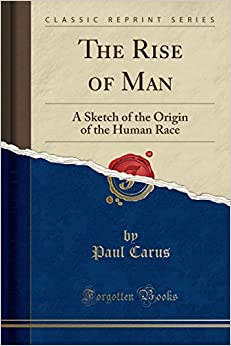
(Republished in 2004.)
Republished in 2004.
https://www.amazon.com/Rise-Man-Sketch-Classic-Reprint/dp/1332472966/ref=sr_1_fkmr0_1?dchild=1&keywords=paul+carus+The+Rise+of+Man%3A+A+Sketch+of+the+Origin+of+the+Human+Race&qid=1590082639&s=books&sr=1-1-fkmr0
1907
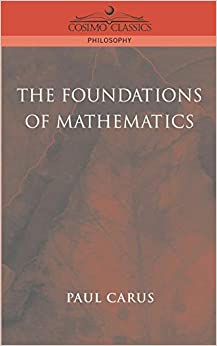
(In this brief treatise, Carus traces the roots of his bel...)
In this brief treatise, Carus traces the roots of his belief in the philosophical basis for mathematics and analyzes that basis after a historical overview of Euclid and his successors. He then examines his base argument and proceeds to a study of different geometrical systems, all pulled together in his epilogue, which examines matter, mathematics, and, ultimately, the nature of God.
https://www.amazon.com/Foundations-Mathematics-Cosimo-Classics-Philosophy/dp/1596050063/ref=sr_1_3?dchild=1&keywords=Paul+Carus+The+Foundations+of+Mathematics&qid=1590081006&sr=8-3
1908
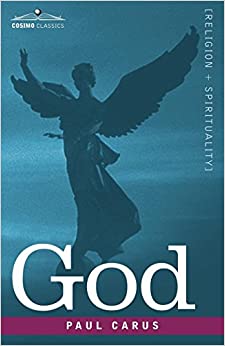
(Carus called himself "an atheist who loved God," and here...)
Carus called himself "an atheist who loved God," and here, in this 1908 work, he explores the modern idea of the deity and how our relationship to that idea is important for believers and unbelievers alike. Eschewing mysticism and morality without denying the vitality of either mode of thought, Carus examines the concept of God from a rational perspective, invoking provocative ideas about Christian theists who are actually pagans, the selfish nature of the belief in an eternal soul, and the absolute necessity for true believers to allow room for interpretation and alteration of their beliefs.
https://www.amazon.com/God-Enquiry-Highest-Solution-Standpoint/dp/1602063907
1908
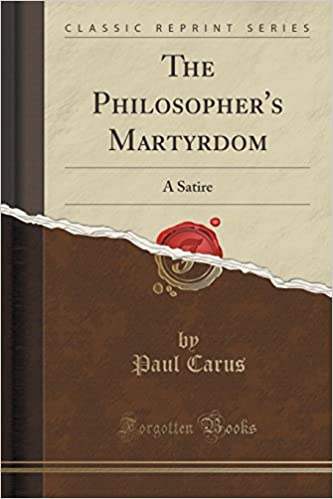
(Excerpt from The Philosopher's Martyrdom: A Satire Hedoni...)
Excerpt from The Philosopher's Martyrdom: A Satire Hedonism in any form is practically denial of all morality. Bentham's egotistical hedonism is immoral but logical. Mr. Spencer's hedonism, aiming at the greatest happiness of the greatest number, is illogical without thereby becoming moral. Why shall I sacrifice my happiness for the happiness of others, be they few or many? And suppose the majority to be villains, what then? Was it truly right that Socrates should drink the cup of hemlock?
https://www.amazon.com/Paul-Carus/dp/1330411129/ref=sr_1_fkmr0_1?dchild=1&keywords=paul+carus+The+Philosopher%27s+Martyrdom%3B+A+Satire&qid=1590081188&s=books&sr=1-1-fkmr0
1908
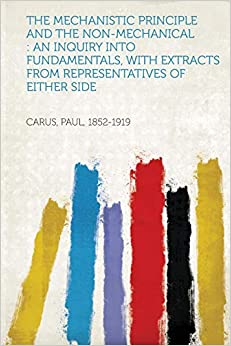
https://www.amazon.com/Mechanistic-Principle-Non-Mechanical-Fundamentals-Representatives/dp/1313778338/ref=sr_1_1?dchild=1&keywords=paul+carus+The+Mechanistic+Principle+and+the+Non-Mechanical&qid=1590081861&s=books&sr=1-1
1913
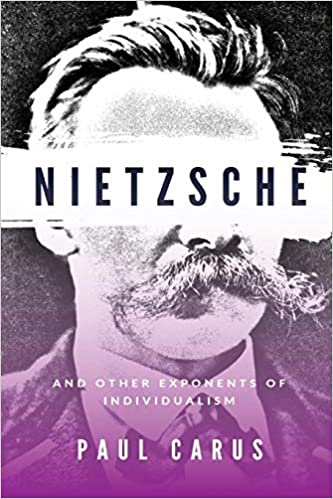
(The American philosopher and theologian Paul Carus wrote ...)
The American philosopher and theologian Paul Carus wrote this small yet magnificent work, first published in 1914, where he surveys Nietzsche's views on the overman, extreme nominalism, ego-sovereignty, the principle of valuation, individualism, and more. Not just a book on Nietzsche's philosophy, it contains biographical information based on the recollections of Paul Deussen, Nietzsche's closest friend. It also contains, and that's rare among all books on Nietzsche, chapters on his predecessor and disciples. This book serves as both an introduction to and further reflection on one of the most controversial philosophers of the 19th century.
https://www.amazon.com/Nietzsche-Other-Exponents-Individualism-Carus/dp/108122584X/ref=sr_1_2?dchild=1&keywords=paul+carus+Nietzsche+and+Other+Exponents+of+Individualism&qid=1590081971&s=books&sr=1-2
1914
Paul Carus was born on July 18, 1852, in Ilsenburg, Germany. He is the son of Gustav and Laura (Krueger) Carus.
Paul Carus was educated at Gymnasium at Stettin, then studied philosophy, classical philology, and natural science at the University of Strassburg, at the University of Greifswald and graduated from the University of Tübingen with a Doctor of Philosophy in 1876.
After receiving a doctorate at Tübingen in 1876 and completing military service, Paul Carus next was an instructor at the military academy in Dresden, but he was forced to leave because of religious views he had expressed in pamphlets.
Carus went to England for a while and eventually moved to New York, where he published "Monism and Meliorism" in 1885. This book aroused the interest of Edward Carl Hegeler, a German chemist in La Salle, Illinois. He had founded a periodical called "The Open Court" in 1887 and invited Carus to become its editor.
In 1888 another and more technical journal, to be devoted to the philosophy of science, "Monist," was founded and Carus became the editor of this as well.
Paul Carus also published philosophical and scientific classics, including Ernst Mach’s "Science of Mechanics," that are still widely used. In 1888 he married Hegeler’s daughter Mary, who assisted him in editing the two journals and, after Paul's death, continued to edit them until her death in 1936. Their daughter continued to operate the "Open Court Publishing Company," which published the Carus lectures, given by distinguished philosophers at meetings of the American Philosophical Association. The Carus family operated the "Open Court Publishing Company" until 1996. Carus was also the leader of the United States group of the "Mahabodhi Society."
Paul Carus has been listed as a notable editor, author by Marquis Who's Who.
Carus attended the World’s Parliament of Religions held in Chicago in 1893, where he befriended a number of the Buddhist delegates including Shaku Soyen, abbot of Engakuji monastery in Kamakura.
Carus' contribution to the acceptance of Buddhism in America was considerable: not only did he vigorously argue the Buddhist case in print, but he was a major influence on the intellectual development and career of that pioneer of Zen Buddhism in the West, D. T. Suzuki.
Paul Carus is the author and contributor to more than 70 books and around 1500 articles.
(The subject discussed in this book is one of the most imp...)
1903(The American philosopher and theologian Paul Carus wrote ...)
1914(A pioneer in the promotion of interfaith dialogue, Paul C...)
1900(Carus called himself "an atheist who loved God," and here...)
1908(In this brief treatise, Carus traces the roots of his bel...)
1908(This work soon became a worldwide bestseller, completely ...)
1894(Excerpt from The Philosopher's Martyrdom: A Satire Hedoni...)
1908(Immanuel Kant - Author, Paul Carus - Translator.)
1902(It seems that there are such principles. And one of the f...)
1887(Republished in 2005.)
1899(Republished in 2004.)
1907Carus wasn't a Buddhist but he was convinced that Buddhism was the religious tradition closest in spirit to his own philosophy.
Carus’s slip into obscurity was hastened as world events prompted him to enunciate his political philosophy, the details of which came as a shock to many of his admirers. The First World War brought out his nationalist and racist tendencies, and he alienated many of his most faithful readers with his staunch denunciations of the English and his supremacy of the German race. In fact, Carus’s outspoken support of Germany brought him more than simply bad press - the Bureau of Investigation (forerunner of the FBI) engaged in a protracted undercover investigation of Carus. In the end, the investigation revealed nothing more than the obvious fact that he held unpopular views.
Carus' mission in all his writing was to conciliate science and religion. Between 1890 and 1900 he elaborated a philosophy that he sometimes called “monism” and at other times “religion of science” He was convinced that science provided the key to all human problems. Religion was in a state of change, in which it would overcome its superstitions and find a solid foundation in the scientific Weltanschauung.
The key tool for constructing this “religion of science” was provided by the German mathematician Hermann Grassmann, who developed vector analysis. He had created a general science of pure forms that, unlike the empirical sciences, was not limited by the three-dimensional spatial world. His vector geometry could be expanded to unlimited dimensions. Carus’s account of the nature of the world and our knowledge of it is a generalization of this method of geometry. There are forms in the world that belong to everything. The form is the quality not only of mind but of all reality. There is a one-to-one correspondence between knowledge and the external world because all elements of objective reality are inseparably united with the corresponding elements of subjective reality. According to his monism, all things are one by virtue of certain eternal laws that exist in things and are discovered by the inquirer. Such laws of nature are dependent on a single law - God.
Carus rejected Kant’s position that the laws of nature depend on the mind of the knower; knowledge is the grasping of forms that are in the world. Hence Carus may be called a realist. He repudiated not only idealism but also materialism, claiming that every part of the world is both material (and acts according to the laws of matter) and spiritual (and acts according to the laws of mind). Thus he avoided the bifurcation of nature into minds and bodies in a way that is suggestive of Whitehead, who developed his process philosophy some years later. Human minds and souls differ from the rest of the world only in degree, not in kind. Carus’ monism regarded the world as a living actuality that in its evolution from lower to higher forms naturally evolved ever-higher souls and, accordingly, raised the subjectivity of atomic life to the intellectuality of a human being.
Carus was somewhat disturbed by Einstein’s relativity, not because it destroyed classical notions of absolute space, time, and motion but because the language of relativity sounded too much like the language of paradox and even of mysticism. This new physics, he thought, manifested a subjectivist tendency. It even implied the relativity of truth itself, as had the philosophies and théories of Bergson, Freud, Nietzsche, and the pragmatists.
Paul Carus married Mary Hegeler on March 29, 1888.
